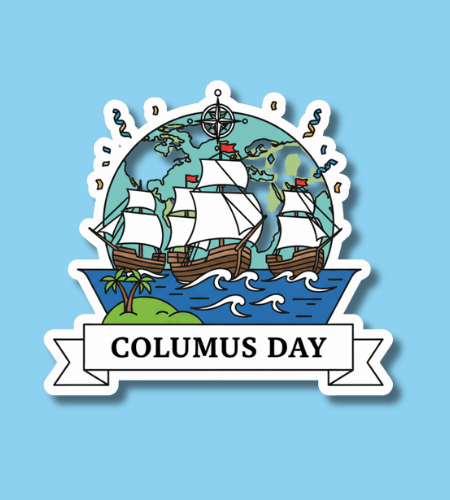Columbus Day is celebrated in the United States on the second Monday of October each year, marking the anniversary of Christopher Columbus’s landing in the Americas in 1492.
Table of Contents
History of Columbus Day
The tradition of commemorating Columbus’s voyage began in the late 18th century. In 1792, on the 300th anniversary of his landing, the Columbian Order (also known as the Society of St. Tammany) in New York City held public celebrations. Over time, the observance spread, and by the early 20th century, Italian-American communities particularly embraced the day as a way to affirm their heritage.
In 1937, President Franklin D. Roosevelt signed a proclamation making Columbus Day a national holiday in the U.S. In 1971, Congress passed the Uniform Monday Holiday Act, moving its observance to the second Monday in October to provide consistent long weekends.
Why is Columbus Day important?
For many, Columbus Day is about exploring identity and heritage. It has been a day for Italian-American communities to celebrate their contributions to American society, affirm pride in immigrant roots, and counter past discrimination. However, the holiday is also a site of deep reflection and debate. Over recent decades, critics have highlighted the darker legacies associated with colonization—displacement, diseases, forced labor, and cultural disruption suffered by Indigenous peoples.
This tension means Columbus Day often becomes a moment to reckon with history: to remember that any celebration of exploration carries complexities, and to ask whose stories have been honored or silenced. In many places, it has inspired alternative commemorations that center Indigenous voices.
- It reminds people that history is complicated, full of both achievements and harm
- It can spark dialogue about whose stories get told or left out
- It offers an opportunity for communities to reclaim cultural pride
- It challenges us to remember those impacted by colonial expansion
- It invites reexamination of national myths and identity
How to Observe Columbus Day
If you wish to observe Columbus Day meaningfully, you might combine celebration with critical reflection. You could attend a parade or community event that honors Italian heritage—music, food, storytelling—while also listening to Indigenous perspectives. In educational settings, it’s a chance to encourage balanced lessons: include accounts of Indigenous histories before and after 1492, rather than a single “discovery” narrative.
You could visit museums or cultural centers hosting special exhibits, or join public lectures or panels that explore colonial history and Indigenous resilience. Many local governments now offer events recognizing Indigenous Peoples’ Day either alongside or in place of Columbus celebrations. Some people choose to use the day for service—supporting Indigenous causes, donating to tribal organizations, or volunteering in community reconciliation efforts.
Here are a few ideas you might try
- Attend or help organize a cultural parade or festival celebrating Italian heritage and history
- Read or share books and articles by Indigenous authors about colonial impacts
- Visit a museum, gallery, or exhibition focused on Indigenous and colonial histories
- Support or donate to Indigenous organizations or education programs
- Facilitate or join a respectful discussion about history, memory, and identity
Columbus Day Dates Table
| Year | Date | Day |
|---|---|---|
| 2026 | October 12 | Monday |
| 2027 | October 11 | Monday |
| 2028 | October 9 | Monday |
| 2029 | October 8 | Monday |
| 2030 | October 14 | Monday |
Subscribe to our newsletter and never miss a holiday again!

